- Home
- Jerry B. Jenkins
Riven Page 16
Riven Read online
Page 16
“You don’t say.”
Yanno nodded. “The con looks desperate. You look like a pushover. I’ve never seen a chaplain change a board’s mind.”
The Deacon, gray-haired and looking late sixties, sat gazing at the two men. “You wanna meet the new chaplain, Deke?”
The old man shrugged.
“It’s up to you,” the warden said.
The Deacon stood, and the two approached. Thomas took his cue from the warden and stayed back from the door.
“Child murderer,” the Deacon said, as casually as if calling himself a member of the local Jaycees.
“Sorry?” Thomas said.
“Murdered three kids so they wouldn’t rat me out. But here I am.”
Thomas introduced himself.
“You can’t replace Russ, I hope you know.”
“I wouldn’t even try. I’ll just be myself. But if you’d like to continue your weekly meetings—”
“That will be totally up to you,” the warden said.
“Yeah, well, not likely,” the Deacon said. “But I’ll think about it.” He sat back down and looked away.
“Did I offend him?” Thomas said.
LeRoy chuckled. “Did you offend him? He offended society and God and children and every rational human being. Don’t you worry about offending him. His execution is scheduled before the end of the year, and all his appeals have been exhausted.”
“How awful.”
“Yeah, no. It’s long past due. Now, come on, I’ll show you the contraband sample room. The execution chambers are on the way.”
“Chambers, plural?”
“Oh, yeah. We’re the only facility in the United States that’s a full-service death provider.”
Yanno’s attempt at humor made Thomas shudder.
“Yep, we let the condemned decide. Hardly any place has a gallows anymore, but we do. And even fewer have electric chairs. Barbaric, they say. Ours sits in a gas chamber—another dying breed. Guy can sit strapped in that chair and take the juice or the gas. Then there’s the hospital room, as our guys call it. That’s supposedly the humane way to go, you know. They paralyze you, then pump you with poison.”
They came into view of three glassed-in rooms that looked out onto a bank of two dozen chairs for viewers. The warden flipped a switch, and the blinds raised in all three rooms. The first was about double the size of a phone booth, with an ancient wooden stairway leading to a platform with a four-by-four beam extended horizontally above it. “Just enough room for an officer, an executioner, and a chaplain, besides the condemned. Noose goes around the beam. Spring-loaded trapdoor gives way. Bingo.”
The next room bore the ugly chair with its metal skullcap, leather straps, and cords running everywhere. “Our multipurpose room,” Yanno said. “You get your choice, but you have to pick one. And then there’s the fancy room, with the gurney and all the comforts of a hospital. This is the one Washington wants us to use, if any at all, though you know even this has come under fire as inhumane. What do they think murder is? The press hates that we offer the menu of four options. Other states are jealous. We agree some of these methods are more gruesome than others, but as the result is the same, and justice is the game, we don’t much care which a guy chooses.”
“Has the Deacon chosen?”
“He’s old-school. Wants the noose. I think it sounds glamorous to him. Maybe you’re lucky he doesn’t seem to take to you. Maybe he won’t ask you to stand up there when he drops.”
Lord, spare me.
“Hey, you wanna sit in the chair, get your picture taken?”
“Are you serious?”
“Absolutely! Lots of people have done that. Just say the word.”
“Warden LeRoy, I need to ask you a serious question. Your answer will not change my mind—and I might as well tell you up front that there is nothing I’d less rather do. . . .”
“There’s no danger! Power’s off. We strap you in, even put the cap on you, put a mask on—”
“No, sir. Thank you.”
“But you had a question.”
“I’m just wondering if it makes me look soft for not wanting to.”
The warden studied him. “No. No, it doesn’t. Makes you look mature. Sensible even. I don’t show off the picture of me, though my family gets a kick out of it. You can imagine what the press would do with it. If it makes you feel any better, Russ was just as dead set against it as you.”
“That does make me feel better.”
“I respected him for it. You too.”
Subdued—shaken was more like it—Thomas followed Yanno to the sample room. It was a macabre museum, exhibiting the endless creativity of the criminal mind. Here he saw bars of soap in a sock, meant to be used as a club that could render an officer unconscious. Plastic toothbrushes had been filed to points so sharp they could pierce a man’s chest to his heart. Electrical wire, removed from the wall and woven, then sharpened, was as deadly as a razor. Knives formed from the tiny blades inside disposable razors. Hardware from a bunk had been fashioned into a supersharp shank.
“What’s this?” Thomas said, lifting what appeared to be a papier-mâché knife. It looked brittle but felt solid as steel.
“Believe it or not, that is made of toilet paper, toothpaste, fruit juice, syrup, and sugar. All that, mixed and tightly wound and left to dry for several days, results in the weapon in your hands. This particular one found its way into the forearm of one of our biggest and toughest officers. He required forty stitches and was out of work nearly a month.”
“And what did the perpetrator suffer for that?”
“Three months in Ad Seg and another twenty years added on to a life sentence, which means nothing to him. He gained a rep with the rest of the population that he felt was worth the time in the hole.”
Thomas had taken only one bite of the party doughnut and one sip of coffee, so he should have been hungry by the time Yanno walked him back to his office. But with the sights and smells and sounds colliding in his brain—slamming doors, turning locks, alarms, two-way radios, intercoms, TVs, shouting, swearing—food was the furthest thing from his mind.
After thanking the warden for his time and assuring him that, yes, he believed he could learn to adapt and to handle this, Thomas slumped at his desk. His plan that first day had been to not bring a lunch but rather follow the crowd to the staff cafeteria. He’d wanted to get to know his colleagues informally and get a taste of institutional food, which Gladys had assured him was much better than what the inmates were rationed.
But Thomas could not bring himself to rise from his chair.
“Oh, Lord, I’ve been so sheltered. I had no idea. I feel empty, worthless, without any resource to reach these men. Help me. Give me something. Show me what I can do.”
Suddenly he wanted more than anything to be with Grace. He wasn’t sure how much he should tell her. She would want to help somehow, to come alongside and aid him in this ministry. But he would never allow her into that pit. Nothing would be served by so offending her sensibilities. Anyway, he had five hours before he would see her. Much as he wanted to be anywhere but right there right then, how would it look, his leaving early the first day on the job?
This was hardly the only crisis in his life. He reminded himself that the regular hours, the ability to attend church rather than lead it, the extra time he’d get with Grace—all those were on the positive side of this ledger.
But he worried about Grace’s health. She was better, that was certain, but clearly not back to her old self.
And then there was Ravinia. How he ached for her! Ironically, she would be encouraged by this new career path of his. But he could not call her without Grace on the other line. It just wouldn’t be right.
They had decided not to hound Ravinia, and they had even chosen not tell her of this chaplaincy until it was a done deal. Well, now it was. They could call her that night.
22
Dennis Asphalt & Paving
Brady was
startled when a figure appeared in the fading light and leaned against the metal outbuilding. Brady had been with the company just long enough to start feeling comfortable, but he wasn’t sure he felt enough ownership yet to hop down off the forklift and ask if he could help the man.
Brady kept an eye on him as he finished loading a pallet and deftly positioned it on the delivery truck. Now his path to the finished forms in the building would take him directly past the onlooker and Brady would have to acknowledge him.
The man offered a polite salute and stepped back as the forklift rumbled near.
“Mr. Tatlock!”
Brady shut down the machine and climbed down to shake the Laundromat owner’s hand. He was reminded of the man’s beefy firmness. “What brings you here?”
“You do. I’m impressed that you’re keeping up with your payments. Shows me something. But I need a favor. I tried to get a ticket to your musical there at the high school and was told they were sold out, all six shows.”
“True. How’d you hear about it?”
“There are posters in every store window, but don’t you know it’s all over the trailer park? You’re a celebrity, Brady. Now don’t you kids in the show get some tickets for your friends and family?”
“Yep.”
“Yours already all spoken for, or would I be able to buy a couple off of you?”
“We’re not supposed to sell ’em, but I’ve got a couple to spare if you could take the value off my balance.”
“I could live with that.”
“Really?”
“I’d love to take the wife. Be able to say I knew you when you were nobody.”
“I’ve been giving mine to other cast members because I don’t have that many people who want to come. But I have a few left.”
“Any for the second Saturday show, first weekend?”
Brady nodded, thinking. “You could do me a favor too, sir, if you don’t mind.”
“Name it.”
“Think you could bring my little brother? He’s dying to see it, but I wasn’t sure how I’d get him there.”
They worked out where and when Peter should meet the Tatlocks. Brady felt giddy the rest of his shift; he found himself maneuvering the forklift like an old pro, finished ahead of time, and didn’t break a single stop. And for a time he had been able to push to the back of his mind even his impending midterms. The last one on came Friday just hours before the curtain for opening night, which would make it the toughest chore he could imagine. Even if he had studied. Which he hadn’t.
Adamsville
It still amazed Thomas that the emotional drain was as taxing as physical labor at this stage of his life. He should have learned it many times over in the pastorate. He had never been one for working out and was not an athlete, not even a weekend warrior. The most exercise he got was mowing the lawn. His job was sedentary, and except for getting in and out of the car and walking the halls for the occasional hospital call, he’d done nothing in decades that should have physically taxed him.
But when criticism came, contentious meetings or aspersions on his abilities, he had often returned home desperate to just lie down. That was how he felt now, and what had he done that day? Stood around at a short party. Walked a few hundred yards with the warden inside the prison.
He knew what was weighing on him—the stark reality of the Adamsville State Pen. That and having lost his appetite until he pulled into the driveway.
Just as he had feared, Grace had done too much. She looked the way he felt, but the cozy little house was almost entirely set up the way she wanted it. There were empty boxes all over that he would have to break down and store. And she had left a few wall hangings for him that were too high for her.
But it was clear she had busied herself all day. He felt whipped because of the assault on his sensibilities, but she had truly earned her exhaustion. She proudly led him to the tiny spare room at the back of the house, which was bright because of windows on three walls and sat next to a half bath. Grace had moved in all of Thomas’s boxes of books and his files.
“Oh, hon, you could have made this a sewing room or your own reading room.”
“You’ve always wanted a home office,” she said. “And now that you don’t really need one, you have it! We ought to be able to find a desk at a garage sale or somewhere.”
He smiled. “If you’re sure, I’d love that. I can read and pray in here. It’ll be perfect.”
Grace fixed a light supper, which Thomas devoured, even eating her leftovers. “I could have made more,” she said. “And we have dessert in the fridge.”
“I’ll get it,” he said.
“I’ll pass.”
He helped her clear the table and do the dishes. “You need to get off your feet,” he said.
Grace insisted she felt fine and said she didn’t even think she’d need to see a doctor after all. Thomas wasn’t so sure, but she had never been easy to persuade.
Finally they sat in their new living room and she quizzed him about his day.
Thomas didn’t hide that it had been as harrowing a day as he could remember, but he refused to go into any detail that might upset her. “It’s just going to be a tough, tough mission field,” he said.
“How can I help?”
“By praying. And getting others to pray.”
“That should be easy. As soon as we find a church, I’ll rally some ladies.”
He told her of all the rules and regulations that would keep her from visiting or sending in gifts of any kind, including food.
“That sounds awfully strict.”
He forced a smile. She had no idea.
“Well,” he said with a sigh, “we should call Ravinia now.”
Dirk answered the phone, which flustered Thomas. The young man was chipper and friendly, as if oblivious to the fact that his lover’s parents could not possibly be happy with their daughter’s living situation. “How’re you both doing?” he said. “Rav and I have been curious to death about where you’ve landed and whether you’re well.”
Grace was silent.
“That’s why I called, Dirk,” Thomas said. “I do have a new situation I’m excited about. Is Rav handy?”
“I’ll get her. Unfortunately this isn’t the best timing, because we have a thing we’re going to in about fifteen minutes, but—”
“Oh, we can call back.”
“No, no! Ravinia has really been quite anxious to hear. Here she is.”
“Hey,” she said, sounding rushed and distracted. “Tell me everything.”
“Hello to you, too,” Grace said flatly.
“Hi, Mom. Sorry. Like Dirk said, we’re on the run in a few minutes, but talk to me.”
“Believe it or not,” Thomas said, “your old man is no longer a pastor.”
“You’re kidding.”
“Don’t refer to yourself as her old man, Thomas.”
“Yeah, Dad. If you’re trying to be hip, Dirk would be my old man, but since we clearly don’t want to go there . . .”
Thomas told her all about his new job. She didn’t interrupt once, and when he finished, he couldn’t even hear her breathing. He wondered if the connection had been lost. But finally she spoke.
“That is really interesting,” she said, and it was clear she meant it. “I’m impressed, Dad. You know I wanted you in the private sector, but I couldn’t imagine you selling insurance or becoming a clerk of some kind. Forgive me, but are you tough enough for this? Adamsville is a supermax, right?”
Thomas told her he had the same hesitation, as did everyone else involved. “I realize I’ll have to grow into this. But otherwise it seems to play to my strengths, and I do feel for these men.”
Ravinia was silent again, but the sense that she needed to get going had faded. “I haven’t told you, have I, Dad, where my educational emphasis has turned?”
“No.”
“Criminal justice.”
“Seriously?”
“Dirk laughs at me
because I’m actually considering becoming a public defender. He says altruism is one thing, but even becoming a prosecutor would pay a little more. Those are the bottom two rungs on the legal ladder, you know.”
“But it sounds like rewarding work.”
“Thankless is more like it, but I’ve shifted my coursework, and the whole area really resonates with me. Dirk is big on victims’ rights, which are hard to argue with, but many of these perpetrators are victims too, you know.”
Thomas knew how Grace would feel about that and was grateful she didn’t weigh in.
“I’m no longer so black-and-white even about capital punishment, Dad. I know where you are on that, but you’d be stunned by all the evidence and arguments against it.”
Thomas didn’t feel in the mood to pursue it just then. “At least I’m not as knee-jerk on that subject as the people I’ll be working with,” he said.
“I can imagine. ‘No liberty, but justice for all,’ right?”
“Something like that.”
“Who knows, Dad? If I become a public defender someday, the cases I lose may end up in your chapel services.”
“They don’t even have chapel services at ASP,” Grace said, but Thomas cut her off.
“All in good time, dear. We’ll let you go, Rav, but we just wanted you to be up to speed.”
23
Friday | Forest View High School
Brady was worthless all day Friday. Three midterms, none of them easy, and all he had done during the week was rehearse, work, and have his suit cleaned. After the audition, three dress rehearsals, and an hour of cast photos, he wanted it as crisp and dramatic as the first time he had appeared in it.

 The Betrayal
The Betrayal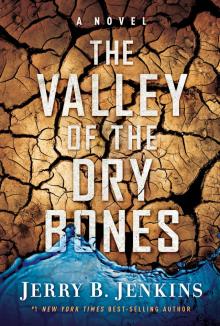 The Valley of Dry Bones
The Valley of Dry Bones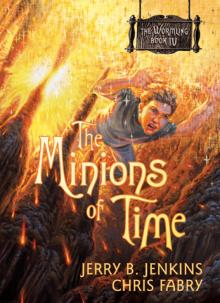 The Minions of Time
The Minions of Time Wild Rescue
Wild Rescue Though None Go with Me
Though None Go with Me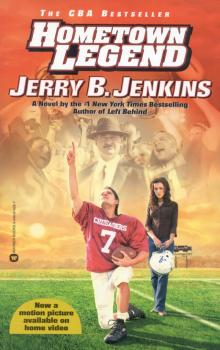 Hometown Legend
Hometown Legend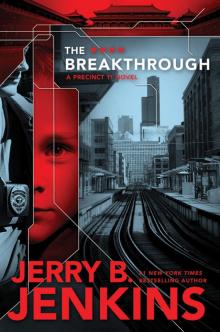 The Breakthrough
The Breakthrough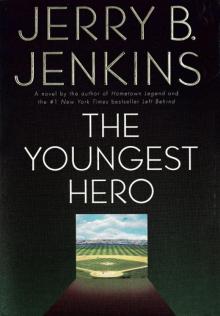 The Youngest Hero
The Youngest Hero Nicolae High
Nicolae High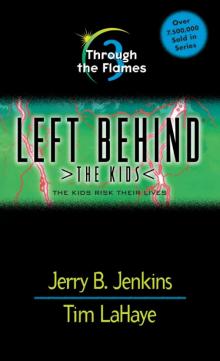 Through the Flames
Through the Flames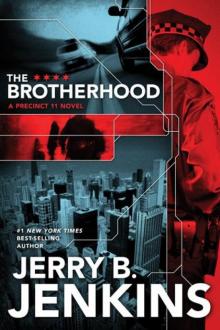 The Brotherhood
The Brotherhood Grave Shadows
Grave Shadows The Changeling
The Changeling Shadowed
Shadowed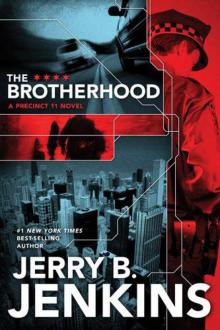 Precinct 11 - 01 - The Brotherhood
Precinct 11 - 01 - The Brotherhood Second Chance
Second Chance Silenced
Silenced The Vanishings
The Vanishings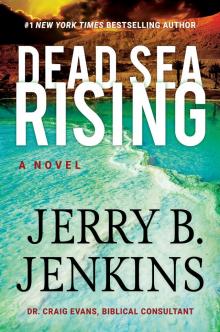 Dead Sea Rising
Dead Sea Rising Soon
Soon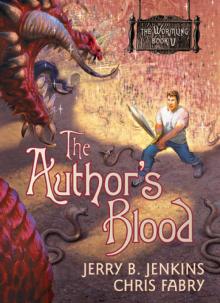 The Author's Blood
The Author's Blood The Sword of the Wormling
The Sword of the Wormling Left Behind - The Kids 02 - Second Chance
Left Behind - The Kids 02 - Second Chance Haunted Waters
Haunted Waters The Underground
The Underground Mark's Story
Mark's Story Shaken
Shaken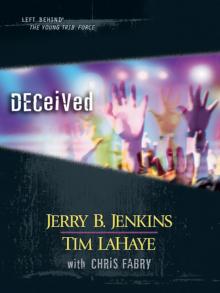 Deceived
Deceived Frantic
Frantic Riven
Riven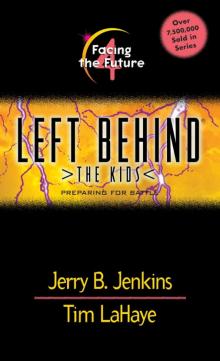 Facing the Future
Facing the Future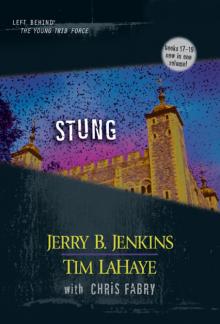 Stung
Stung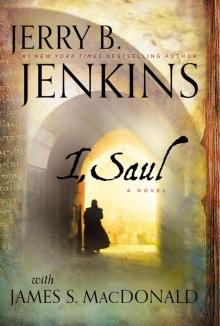 I, Saul
I, Saul Hunted
Hunted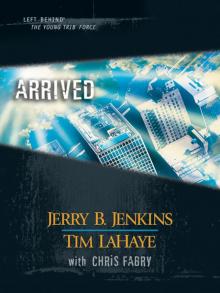 Arrived
Arrived John's Story
John's Story Stolen Secrets
Stolen Secrets